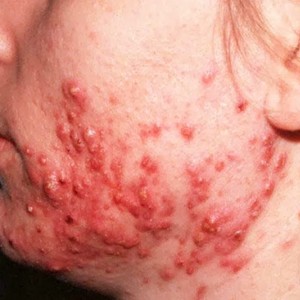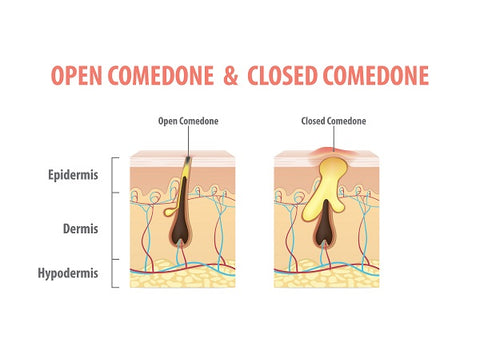Comedonal Acne Symptoms

Comedonal acne is an unpleasant skin condition. The red, inflamed bumps of acne vulgaris are not present with comedoes. Unlike the typical inflammatory type, they do not swell and do not produce pus. They develop as small, closed bumps on the skin. Some people experience comedoes along with inflammatory acne, but it is not very common. If you have a family history of acne, you should visit your doctor and discuss your symptoms with him.
The first symptom of comedonal acne is bumpy skin. These bumps are caused by the sebaceous gland lining. Sometimes, the comedones develop into cysts. In rare cases, they can spread to other parts of the body. To distinguish between inflammatory and non-inflammatory acne, it’s helpful to know what comesdoes are and where they’re most commonly found.
Open comedones are blackheads. They appear as large, dark spots on the skin. People may mistake these small bumps for dirt. Giant comedones are a type of cyst. These are larger lesions with a swollen, red opening. Microcomedones are the same as macrocomedones, but are not as visible. Solar comedones form on the face in older people.
The most common type of comedonal acne is solar comedoes, which are large, dark bumps on the skin. These form after prolonged exposure to UV rays, and can vary in size and color. These are not painful and cannot be popped. They feel like small bumps on the skin. However, they can cause pain and can lead to scarring if picked. This condition should be treated by a dermatologist.
Adults with oily skin are more likely to develop comedoes than people with dry skin. High humidity, smoking, and over-hydrated skin can all contribute to comedoes. Even laser treatment can cause comedoes. The primary symptom of comedoes is a pore that is plugged with dirt and oil. This clogged pore is not covered, and is often painful.
As the name suggests, comedoes are non-inflammatory and do not contain pus. They are not red or sensitive. Unlike pimples, they are rarely visible. To prevent the acne from becoming worse, use a moisturizer and make sure to wash your face with warm water. When you are out in the sun, you should avoid touching your face. It is important to protect your skin against the sun, as it can cause comedones.

Comedoes are small, whiteheads, or blackheads. They form when the pores become blocked. As a result, these blemishes are not painful and cannot be popped. They are not inflamed or red, but they are usually not a problem if you use a moisturizer. If you do get them, you should also use a moisturizer.
The comedo does not contain pus, but looks like acne. This is an inflammatory form of acne. Comedo does not contain liquid. The only difference between comedones and pimples is that there is no pus in comedones. They are usually closed and do not contain pus. A comedo is a small, flesh-colored pimple. They do not contain pus and are not red. They are a sign that you are experiencing inflammatory acne.
Unlike inflammatory forms of acne, comedones do not cause inflammation. This type of acne has whiteheads and blackheads with the same symptoms. They look like small, flesh-colored bumps on the face. Some comedones are larger than usual. If you are experiencing these symptoms, consult your doctor and try to find the best acne treatment. You can also try a local solution by visiting Club of Thai Health.
A comedo can appear anywhere on the face. It is a painless and unsightly skin condition caused by excessive production of sebum by the sweat glands. Its symptoms are characterized by black or white dots and are often very uncomfortable. The only way to cure this acne is to consult a dermatologist. There are various topical treatments for this type of acne, and you can use them in combination with over-the-counter medications.
Because acne symptoms vary from one person to another, you should see a dermatologist for a proper diagnosis. If you suspect that you have comedones, you should take good care of your skin. Keep in mind that if you have comedones, they may be more difficult to get rid of. The dermatologist will also recommend that you avoid using harsh products on your skin, as they can cause more complications.